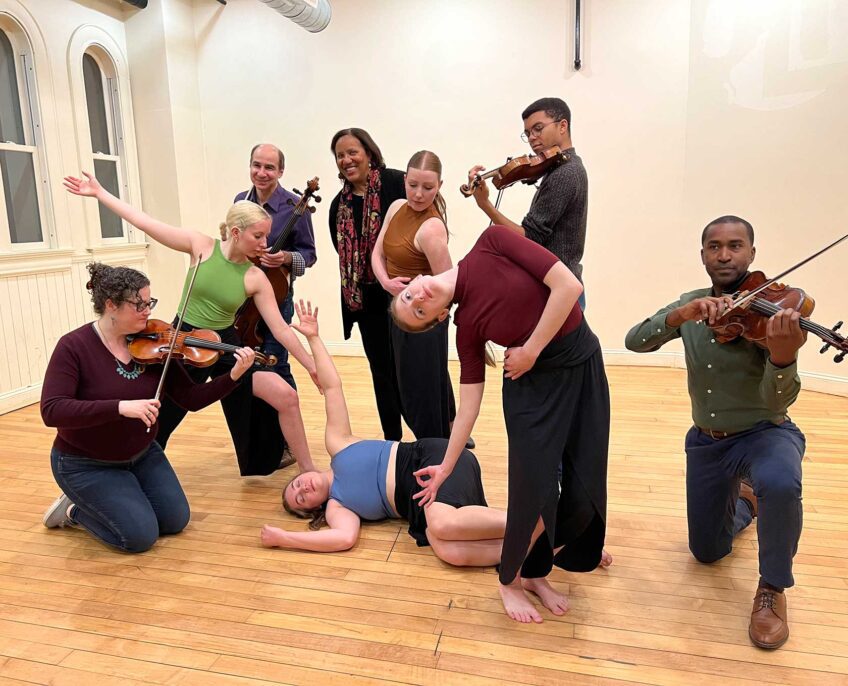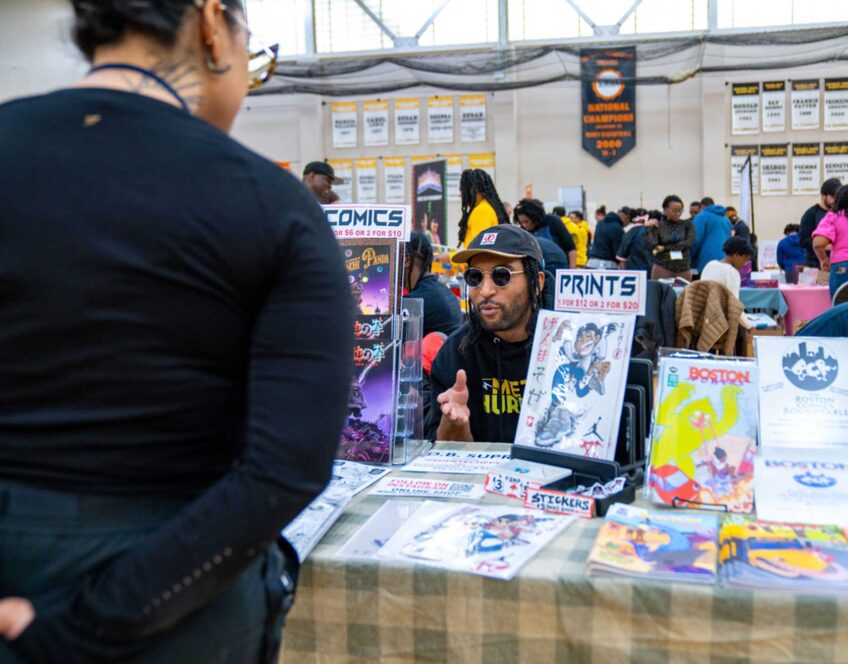From BET to billionaire — and beyond!
The Urban Movie Channel interview with Robert L. Johnson

Robert L. “Bob” Johnson is the Founder and Chairman of The RLJ Companies, an innovative business network that owns or holds interests in businesses operating in hotel real estate, private equity, consumer financial services, asset management, automobile dealerships, sports and entertainment, and video lottery terminal (VLT) gaming.
Prior to forming The RLJ Companies, Johnson was founder and chairman of Black Entertainment Television (BET), the nation’s first and leading television network providing quality entertainment, music, news, sports and public affairs programming for the African American audience.
Johnson continues to attract and manage capital and create value for investors, and in 2012 announced the successful creation of RLJ Entertainment, Inc., one of the largest independent global distributors of digital and video content. RLJ is the third company he’s taken public. In 1991, BET became the first African American company to be traded on the New York Stock Exchange. And RLJ Lodging Trust, a $2 billion market cap hotel real estate investment trust (REIT), went public in 2011.
In 2001, Johnson sold BET to Viacom for approximately $3 billion while remaining the Chief Executive Officer through 2006. The following year, he was named one of “The 25 Most Influential Business Leaders of the Past 25 Years” by USA Today.
In 2014, three of Johnson’s holding companies were featured on the Black Enterprise 100s list: RML Automotive, LLC ranked 1st in a category of 60 in the auto dealership rankings; and RLJ Equity Partners, LLC and RLJ Credit Management, LLC ranked 12th and 14th respectively on the private equity firms list.
Johnson holds a Master’s degree in Public Affairs from the Woodrow Wilson School of Public and International Affairs at Princeton University and a Bachelor of Arts in Social Studies from the University of Illinois. Here, he talks about his recent launch of the Urban Movie Channel (UMC), a premium subscription-based video streaming service exclusive to RLJ Entertainment.
UMC is the first urban-focused digital streaming channel devoted to the acquisition of feature films, comedy specials, stage plays, documentaries, music and entertainment for the African American and urban audiences. Access to the impressive on-demand streaming library is available from mobile devices and on the Roku platform.
How do you see the Urban Movie Channel being used in the new world of multiple screens experiences? Will you be bringing your content to all of the computer and other available functionality, such as social media and interactive technology?
Robert L. Johnson: UMC is an over-the-top, digital streaming channel that is subscription-based, meaning that the consumer pays to get the service. It is targeted to the urban/African American audience, but we believe good entertainment is colorblind, so it is available to everybody, essentially, who wants to go to the site. If you have a web browser, you can get UMC. Our goal with UMC is to bring the creative talent in the African American community, which in many ways is underemployed, to the consumers who desire to see the content that projects their images and tells their stories. And it is designed to create an economic model where members of the creative community can monetize their talent and where the consumers will have a choice to purchase product and content that they can see on any device, whether it’s their flat screen TV, their mobile phone, iPad or any other device that can receive digital streaming content. We believe that, given the choice, these consumers will see UMC as a service they’d like to have along with Hulu, Netflix, Amazon Prime or HBO Go in order to get content not available elsewhere, and at the price they want.
What can the average person do to help improve diversity in entertainment media?
RLJ: Well, the most important thing that the average consumer can do is to take advantage of the opening of the marketplace where you the consumer controls what content you watch or gain access to. Because of the availability of all sorts of platforms, you’re no longer tied to cable, the networks or the satellites. You can be your own programmer. And that’s the beauty of UMC. For the first time, urban content can flow directly to the consumers without any gatekeepers. So you’re not controlled by what advertisers are willing to sponsor, by what studio heads decide to produce, or by the cable operators who will force you to pay for content that you don’t want to see through their bundled channels. You are your own curator; you are your own programmer. So, to me, the smartest thing any consumer can do is subscribe to whatever it is you want to see. And the more people subscribe to urban content, the more of it will be produced for your enjoyment.
Do you think there is any possibility whatsoever that African-Americans will organize their consumption power in such a way that it can be leveraged?
RLJ: African Americans already organize their consumption power. They just don’t leverage it. For example, African Americans as a whole watch more television than any other population group in the country in terms of total hours spent in front of the TV. African Americans are heavy consumers of pay TV and cable TV. African Americans are early adopters of new technology, whether it’s Twitter, Facebook or Instagram. The key is that we have to make sure that choices are available to us, so that our purchasing power will yield content that we want to see. For example, there are two million African American cable subscribers who also take HBO and Showtime at a cost of about $40 a month. That’s a billion dollars of buying power. We’d like to see some of that billion dollars of buying power go to UMC. We promise you that that money will flow to the creative talent, both in front of and behind the camera, to deliver programming that specifically appeals to your viewing interest. So, this new technology, allowing you to leverage your dollars, will change the way African Americans access content and also change the way that content is produced to appeal to African Americans.
Do you think it would be possible for another black-owned media conglomerate, like BET, to emerge in today’s environment?
RLJ: It’s definitely possible, but it would be very difficult to do in this environment. It was difficult when I started BET. Today, the internet makes it possible for a lot of African American content to flow freely to the consumers since there are no gatekeepers, and it is global in terms of its accessibility. We at RLJ Entertainment are laying the foundation to be sort of a BET in the Digital Age by creating the distribution platform of the Urban Movie Channel, by licensing content from independent producers of urban content, by helping them produce that content, and by promoting the awareness of it. We believe that as a first mover in this space, RLJ Entertainment has the potential to become a success story like BET and, obviously, I have a lot of experience in making that happen.
How is your focus today different from at the inception of your media empire?
RLJ: I think the difference is more the technology than the focus. When I started BET, its carriage was totally dependent on the development of cable television in the urban market. Its programming was totally dependent upon getting programming primarily from the networks. Its programming was dependent upon advertising support and cable carriage. And the ability to market it was limited to either buying black radio or going into urban oriented magazines like Ebony, Jet or Essence. Today, there are no gatekeepers in the digital space. I don’t need to talk to a cable operator. I don’t have to go to Ford Motor Company or Procter & Gamble for advertising support. I don’t need to approach the networks for programming. There’s tremendous talent out there producing programming. And I don’t have to spend a lot of money on radio to reach the local markets. I can promote on Facebook and stream information on Youtube while the artists talk about their films on Twitter. The avenues for getting the word out have expanded vastly since when I started BET thanks to the technology revolution of the internet and the Digital Age.




![Banner [Virtual] Art Gallery](https://baystatebanner.com/wp-content/uploads/2024/04/NJ-H_1-713x848.jpg)

